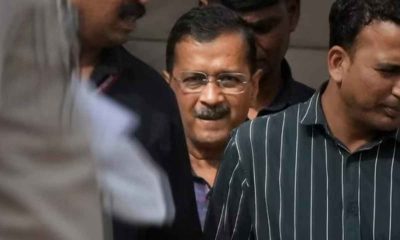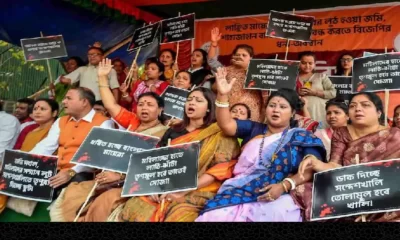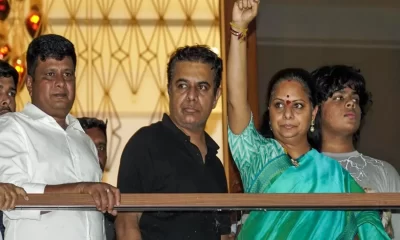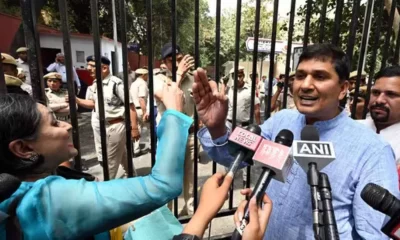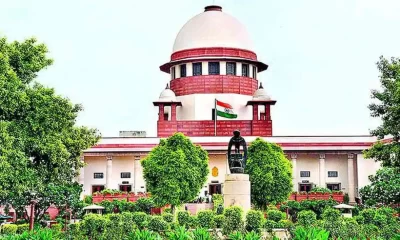India News
CBI row: Supreme Court questions Centre’s hurry to transfer Alok Verma, reserves judgment
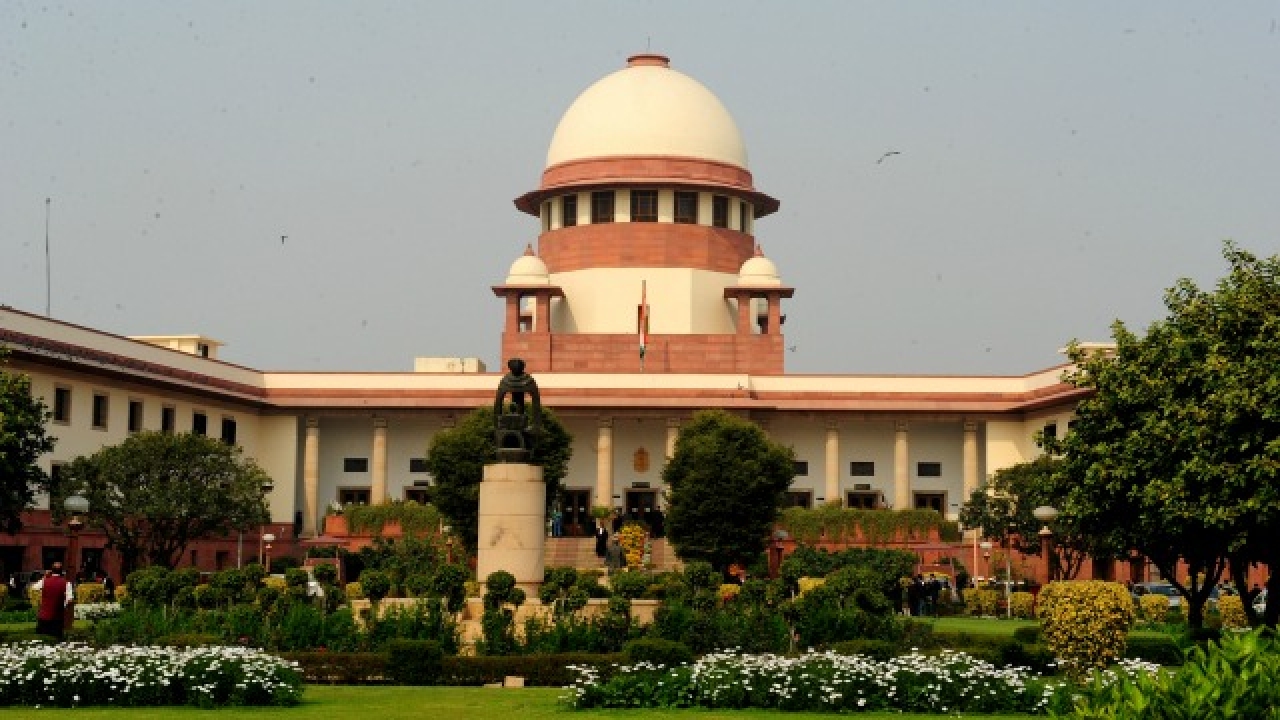
Hearings over, the Supreme Court today (Thursday, Dec 6) reserved its judgment on CBI Director Alok Verma’s plea challenging Modi government’s October 24 order divesting him of all powers and sending him on leave.
The Centre had sent him on leave along with his deputy, special director Rakesh Asthana against whom the CBI had registered a corruption case, while he had levelled similar allegations against his boss.
While hearing the plea Thursday, the three-judge bench of Chief Justice of India Ranjan Gogoi and Justices SK Kaul and KM Joseph questioned the government’s sudden move on Oct 23-24 night when the circumstances leading to it had been present since July.
Chief Justice of India (CJI) Gogoi also asked senior advocate Fali Nariman whether the Supreme Court, if necessary, can appoint a CBI Director.
Nariman, appearing for Verma, thought for a moment before replying that the court could indeed do so in exercise of its “inherent powers” as the final interpreter of the Constitution.
Chief Justice Gogoi then quizzed Solicitor General Tushar Mehta, for the Central Vigilance Commission (CVC), about its tearing hurry to divest Verma overnight on October 23.
“The situation which prompted the CVC to take action against Alok Verma did not start overnight on October 23 (the day Verma was divested as CBI Director)… you (CVC) had tolerated him for two months… So what was it that required you to take a decision ‘overnight’ on October 23?” Chief Justice Gogoi asked Mehta.
“Extraordinary situations do need extraordinary remedies. CVC’s superintendence (over the CBI) encompasses “surprise, extraordinary situations”… Two senior most CBI officers (Verma and Asthana) had turned against each other. Instead of probing cases, they were raiding each other, registering FIRs against each other. They may tamper evidence. This was a surprise situation!” Mehta said.
The court persisted, asking why neither the CVC nor the government chose to take prior approval from the high-powered committee led by the Prime Minister before divesting Verma before the end of his two-year tenure.
The government and the CVC have vehemently argued that there was no need to consult the panel.
“The essence of every good government administration is to do what is acceptable. Now, if there are two options available before the government – one acceptable and the other more acceptable – what stopped you from taking the more acceptable option?” Chief Justice Gogoi asked them.
The court indicated the government and CVC were yet to come out with a reason for not consulting the panel.
“Alok Verma had two years’ tenure and was recommended by this committee. So if you wanted to divest him of something, why did you not consult the committee?” Chief Justice asked.
Mehta replied that had CVC not acted to contain the turmoil within the top CBI brass, it would have been held accountable for “dereliction of its duty” of superintendence over the CBI.
CJI Gogoi countered, “Section 4 of DSPE Act, which controls the CBI functioning, says CVC superintendence over CBI is restricted to probes in corruption cases. Can Section 8 of CVC Act go beyond Section 4 of DSPE Act?”
Mehta responded that the superintendence powers were “wide and plenary.”
Mehta told the court that it was incumbent upon the CVC to act with urgency against Verma because the “top officers of the CBI were investigating cases against each other” and “inaction (on part of the vigilance panel) would have been held as dereliction of duty”.
The Solicitor General said that the order to divest Verma (and also Rakesh Asthana) “was a reasoned one” and was “passed impartially”, adding that the CVC is answerable to the Executive and could have been made answerable to the Legislature “but I can only be answerable to Your Lordships if somebody comes and says to you that the CVC is not performing its functions.”
Mehta added that the decision to divest Verma of his charge was only an “interim measure” and did not amount to his transfer or suspension.
Responding to Nariman’s argument that ‘divestment’ of Verma amounted to his ‘transfer’ and this should not have been done without the prior approval of the panel, Mehta argued, “The word ‘transfer’ would mean a person is divested permanently from one place and invested permanently in an equivalent position in another place… On October 23, considering the seriousness of the allegations, we decided to do something (divestment) which was less than a transfer.”
He said unlike a transfer, divestment has no finality. “Here they (Verma and Asthana) have been asked to keep away from the office till CVC/government takes a call on them,” Mehta submitted.
Concluding his arguments, Mehta told the court that the CVC annual report was full of instances where the panel had taken action against CBI officials, adding that the decision against Verma wasn’t the first of its kind.
Attorney General KK Venugopal, who had concluded his arguments on behalf of the Centre during the proceedings on Wednesday, made some additional contentions after Mehta’s submissions. Responding to the Chief Justice’s slew of questions to Mehta on why the selection committee was not consulted before the decision was taken against Verma, Venugopal said that even if the matter had first been referred to the selection panel, its response would have been “this is not a transfer matter, so why place it before us.” The Attorney General said that Verma’s claim that the action against him was akin to a transfer was based on a “highly artificial” premise.
With submissions of all those opposing Verma’s petition over, his counsel, senior advocate Fali Nariman, began his rejoinder to the arguments placed before the bench.
Nariman rejected the contention of the respondents that the action against Verma did not amount to his transfer and that he continues to be the investigation agency’s chief. Arguing that transfer must not just mean sending an officer from one place to the other, Nariman said that a two-year tenure means that the incumbent must continue to have powers of the agency’s chief and “not just a visiting card and title.”
Nariman said that in the extant case, transfer should not be construed in its literal, ordinary sense, adding that “there is a law dictionary and an English dictionary… this matter is not about pay, perks and facilities as pointed out by the respondents (the Centre and the CVC)… what is the point if I am not allowed to perform my duties but have a two year tenure?”
Verma’s counsel said that the CBI director had been replaced by an interim chief in M Nageswara Rao. Nariman said that soon after Rao took over, he transferred a slew of officers who were probing Asthana. The senior advocate said that since all responsibilities of Verma as the CBI director had evidently been taken over by Rao, the Centre’s decision to send Verma on leave should be seen as a transfer order.
There can’t be an acting Chief Justice of India and likewise there can’t be an acting director of the CBI,” Nariman submitted.
Senior advocate Dushyant Dave, appearing for an NGO that has sought reversal of the Centre’s order, made similar submissions and insisted that while the CVC is mandated under law to have superintendence over the CBI in cases registered under the Prevention of Corruption Act, it could not replace the CBI director.
Dave said that the mechanism of a selection committee to appoint the CBI director was a safeguard given by law and that the Parliament had not imagined that such a situation that arose in Verma’s case (where the CBI director and special director were involved in a public spat) and that the submissions made by the respondents – the Centre and the CVC – portrayed a dichotomy wherein each of them was claiming to have the power to divest the CBI chief of his charge.
Slamming the CVC, Dave told the court that the vigilance panel adopted different standards on similar facts while acting against Verma and Asthana. “The CVC rubbished the allegations against Asthana at the time of his appointment and said they can’t be acted upon unless proved. But in case of Verma, they acted promptly, without waiting for allegations to be proved,” Dave said, adding that the CVC must be scrupulously objective at all times.
Countering Attorney General KK Venugopal’s argument that the selection panel for the CBI director becomes redundant once the appointment has been made, Dave said: “the Attorney General submitted that the committee became functus officio but my submission is that it is the government that has become functus officio (with regard to appointment and transfer of the CBI director), in light of Section 4 (1) of the DSPE Act once the CBI chief is appointed.”
“You may call it (the action against Verma) suspension or transfer but the fact remains that the post of the CBI director is untouchable in the absence of a reference or approval of the selection committee,” Dave said, adding that there was “no exigency for the respondent to pass such an order at 2 hours past midnight… there is much more than meets the eye… Verma was being stopped from doing something.”
Senior advocate Kapil Sibal, appearing for Congress leader Mallikarjun Kharge, who is a member of the selection committee also comprising of the Prime Minister and Chief Justice of India, told the bench that if the arguments of the respondents are accepted then it would amount to giving unbridled powers to the Centre vis-à-vis the CBI chief’s appointment and effectively nullify the top court’s landmark Vineet Narain verdict.
The court also heard submissions by senior advocate Rajeev Dhavan, appearing for CBI officer AK Bassi who has challenged his transfer to Port Blair soon after the government divested Verma of his charge.
Bassi was heading the SIT constituted by Verma to investigate six cases of corruption against Rakesh Asthana. However, hours after M Nageswara Rao replaced Verma as the interim CBI chief, he transferred Bassi and all other members of the SIT probing Asthana, out of Delhi. Dhavan, however, limited his submissions on the action against Verma, stating that the Centre’s decision had turned the CBI upside down.
With arguments and rejoinders concluded, the bench reserved its order on Verma’s petition.
Verma’s two year term as CBI director is due to end on January 18. It now remains to be seen whether the Supreme Court reverses the Centre’s decision to divest Verma of his charge, and if it does, will Verma return to his job with a vengeance, expediting ongoing probes against Asthana and other sensitive cases, including one into the Rafale deal, which he was looking into when the Centre abruptly sent him on leave.
2024 Lok Sabha Elections
Mallikarjun Kharge vows to continue politics till his last breath to defeat BJP
The 81-year-old Congress leader was speaking at a election rally in Afzalpur and said that if the people did not vote for the Congress candidate, he would think that he did not have any place in Kalaburagi anymore.

Congress President M Mallikarjun Kharge on Wednesday appealed to the people of Kalaburagi to at least attend his funeral if they thought he worked for them even though they do not wish to vote for Congress in the ongoing Lok Sabha elections.
The 81-year-old Congress leader was speaking at a election rally in Afzalpur and said that if the people did not vote for the Congress candidate, he would think that he did not have any place in Kalaburagi anymore. The Congress President sought an emotional chord with the people of his home district of Kalaburagi, Karnataka
The grand old party has fielded Kharge’s son-in-law Radhakrishna Doddamani from Kalaburagi, against BJP’s sitting MP Umesh Jadhav. Kharge had won the Lok Sabha elections from Kalaburagi in 2009 and 2014, but lost in 2019. He appealed to the voters to vote for Congress but at least come to his funeral if they thought that he had done some work in Kalaburagi. Kharge added that he would continue in politics till his last breath to defeat the BJP and RSS ideology.
The Congress leader said he is born for politics and whether or not he contests the election, he will continue to strive till his last breath to save the Constitution and democracy of the country. He asserted that he will not retire from politics. Kharge said that retirement happens from a position but one should not retire from his/her principles. He said he is born to defeat the ideology of the BJP and RSS and not to surrender before them.
He advised Karnataka Chief Minister Siddaramaiah, who shared the stage with him, to follow his principles. He said he had told Siddaramaiah many times that he may retire as CM or MLA, but he cannot retire from politics till he defeats the ideology of the BJP and RSS.
2024 Lok Sabha Elections
Nitin Gadkari says he’s better now after collapsing at election rally in Maharashtra’s Yavatmal
A disturbing video of the incident – which was unfortunately streamed live on X (formerly Twitter), including by his own account – showed Nitin Gadkari being carried away by those on stage, many of whom rushed to form a shield around the BJP leader to give him, and those treating him, some privacy.
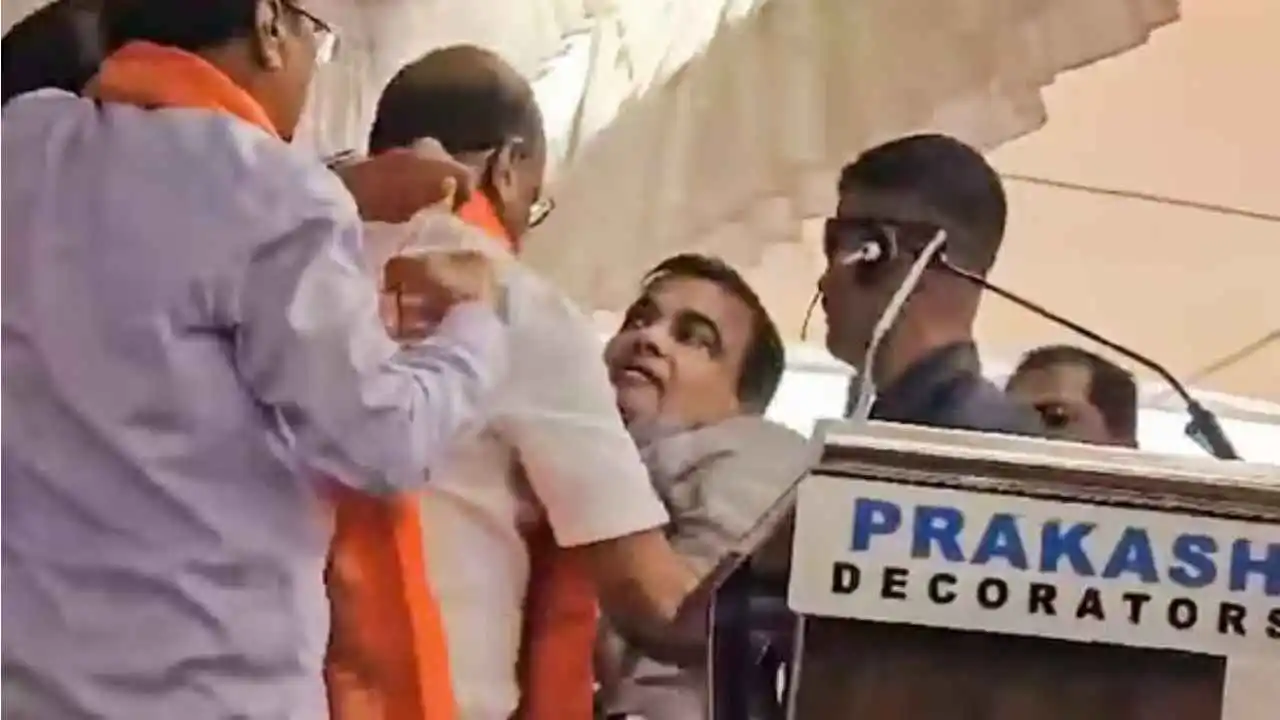
Union Road Transport and Highways Minister Nitin Gadkari collapsed while speaking at an election rally in Maharashtra’s Yavatmal on Wednesday afternoon. Fortunately, the senior Bharatiya Janata Party leader received prompt treatment and was able, after a brief pause, to get back up on stage and continue his speech.
A disturbing video of the incident – which was unfortunately streamed live on X (formerly Twitter), including by his own account – showed Nitin Gadkari being carried away by those on stage, many of whom rushed to form a shield around the BJP leader to give him, and those treating him, some privacy.
Nitin Gadkari took to X and informed that he felt uncomfortable due to the heat during the rally in Pusad, Maharashtra. But now he is completely healthy and is leaving for Varud to attend the next meeting. He thanked his supporters and well wishers for their love and good wishes.
Gadkari, who fought the elections in the first phase of voting as BJP’s candidate from Nagpur Lok Sabha seat, was campaigning for Eknath Shinde-led Shiv Sena leader Rajashree Patil in Yavatmal’s Pusad. Addressing the rally, the union minister said, he was confident that the people of Yavatmal district, which has a constant tendency towards development, will give victory to the BJP-Maha alliance, which believes in all-round development.
Gadkari posted on X that as the nation moves towards a developed India, under the leadership of Prime Minister Narendra Modi, significant work has been done in the last 10 years in the areas of roads and highways as well as health, education and other sectors across the country. He said many schemes of the central government were successfully extended to the rural areas. Due to this, along with the city, the people of the rural areas are also able to benefit from many important facilities.
The Yavatmal constituency along with Akola, Buldhana, Amravati, Hingoli, Wardha, Parbhani and Nanded in Maharashtra are scheduled to vote in the second phase of the Lok Sabha election on April 26.
2024 Lok Sabha Elections
PM Narendra Modi slams Congress over Sam Pitroda’s inheritance tax remarks, accuses Congress of intending to impose higher taxes
PM Modi was speaking at a public meeting in Chhattisgarh’s Surguja, where he alleged that the Congress wants to fill its own coffers by imposing ever higher taxes and not allowing people to pass on their hard-earned wealth to their children.
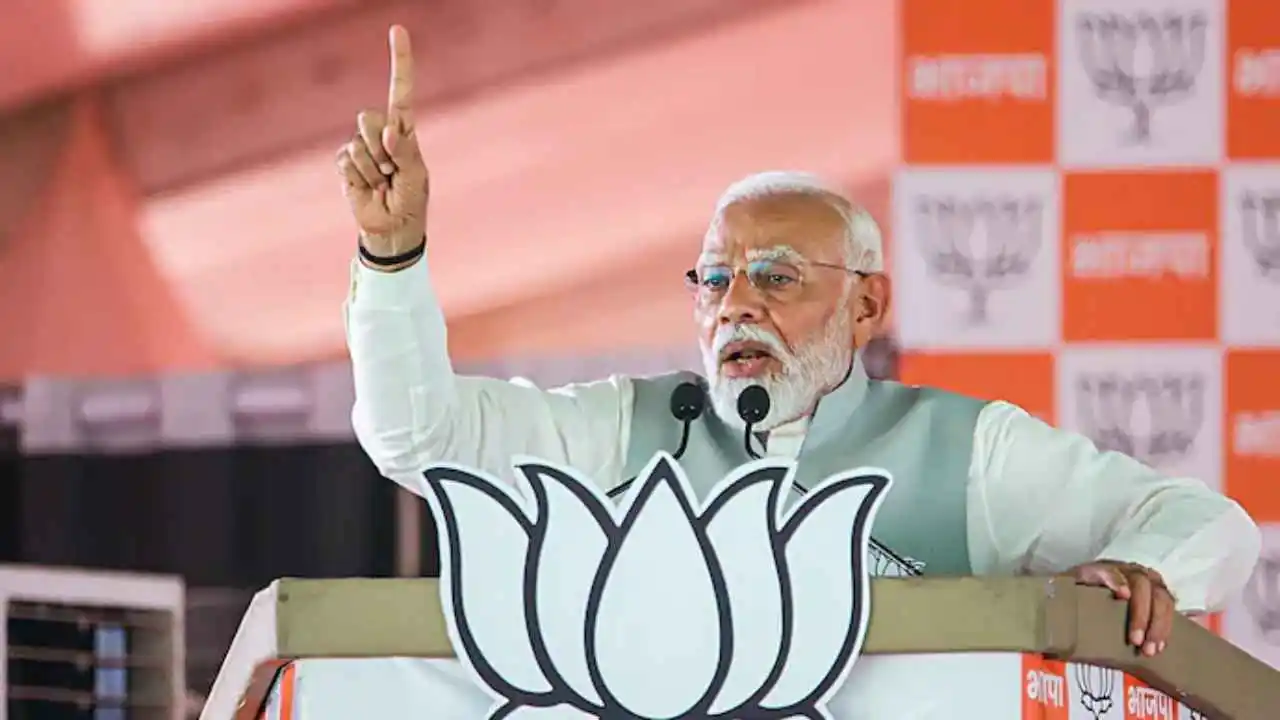
Prime Minister Narendra Modi on Wednesday launched a scathing attack on Congress after Sam Pitroda advocated for a US-style inheritance tax amid the ongoing debate over wealth redistribution. The comments have further fuelled an already-raging controversy over Rahul Gandhi’s promise to conduct a wealth survey if the Congress won the Lok Sabha election.
PM Modi was speaking at a public meeting in Chhattisgarh’s Surguja, where he alleged that the Congress wants to fill its own coffers by imposing ever higher taxes and not allowing people to pass on their hard-earned wealth to their children.
The Prime minister said the advisor (Sam Pitroda) of the prince and the royal family had said some time ago that more taxes should be imposed on the middle class. He said the Congress party says that it will impose an inheritance tax, and it will also impose tax on the inheritance received from parents. PM Modi added the children will not get the wealth that their parents accumulate through their hard work, rather the Congress party will snatch it away from them.
PM Modi said Pitroda’s remarks have exposed the dangerous intentions of the Congress. He took a veiled jibe at the Congress and said the party has only one mantra – to loot people zindagi ke sath bhi, zindagi ke baad bhi (in life and even after death).
The prime minister did not take any names and targeted the Gandhi family and said, those people who considered the entire Congress party as their ancestral property and handed it over to their children, now do not want Indians to pass on their property to their younger generations.
Indian Overseas Congress chairman Sam Pitroda while talking to the media backed his party’s stand on redistribution of wealth and called for a policy for the same while citing the concept of inheritance tax prevailing in some American states.
-
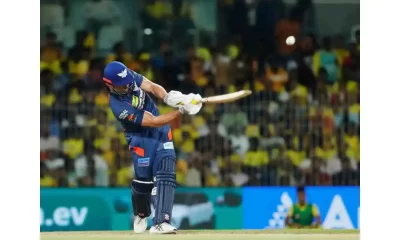
 Cricket news22 hours ago
Cricket news22 hours agoIPL 2024: Marcus Stoinis hits first IPL century as Lucknow Super Giants beat Chennai Super Kings by 6 wickets
-
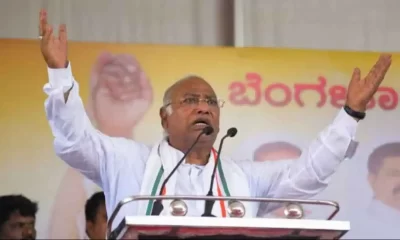
 2024 Lok Sabha Elections14 hours ago
2024 Lok Sabha Elections14 hours agoMallikarjun Kharge vows to continue politics till his last breath to defeat BJP
-
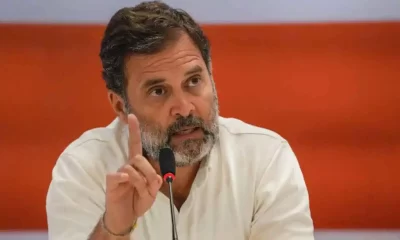
 2024 Lok Sabha Elections20 hours ago
2024 Lok Sabha Elections20 hours agoRahul Gandhi clarifies on wealth survey remark, says aim is to identify injustice
-
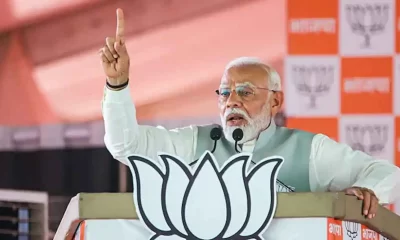
 2024 Lok Sabha Elections17 hours ago
2024 Lok Sabha Elections17 hours agoPM Narendra Modi slams Congress over Sam Pitroda’s inheritance tax remarks, accuses Congress of intending to impose higher taxes
-
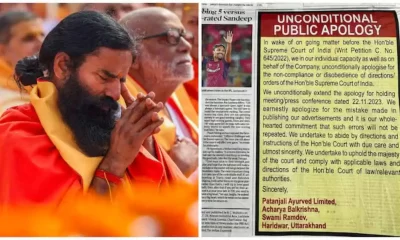
 India News20 hours ago
India News20 hours agoRamdev, Balkrishna publish bigger apology in newspapers after Supreme Court’s rap
-
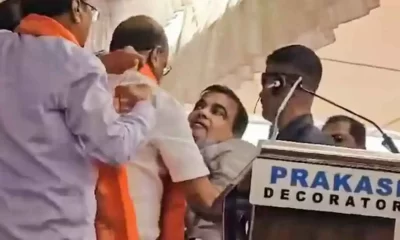
 2024 Lok Sabha Elections15 hours ago
2024 Lok Sabha Elections15 hours agoNitin Gadkari says he’s better now after collapsing at election rally in Maharashtra’s Yavatmal
-
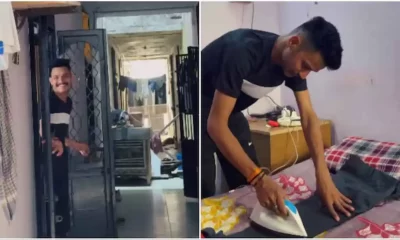
 Trending18 hours ago
Trending18 hours agoA waiter’s life: Social media users go emotional on watching viral video
-
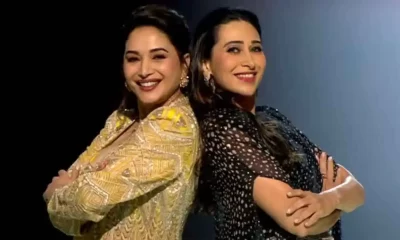
 Entertainment16 hours ago
Entertainment16 hours agoMadhuri Dixit, Karisma Kapoor recreate Dil To Pagal Hai dance battle on Dance Deewane

